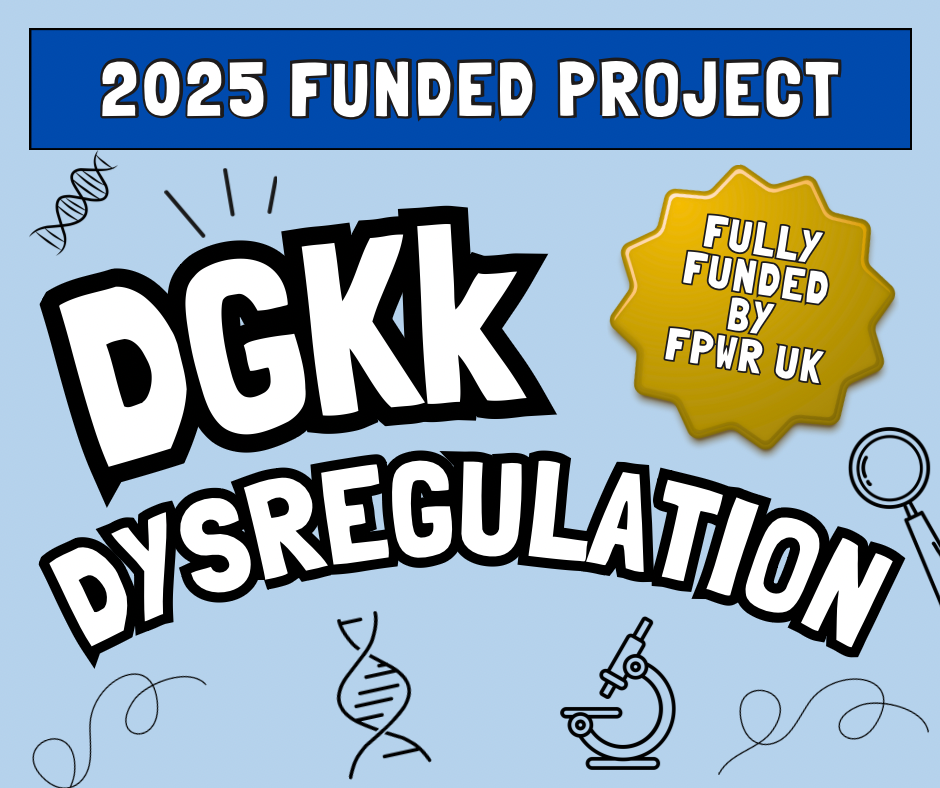
We’re thrilled to announce that FPWR UK is fully funding a groundbreaking research project in 2025 led by European researcher Dr. Hervé Moine. Dr Moine and his team at the Institute of Genetics and Molecular and Cellular Biology in France are investigating what impact an enzyme known as Diacylglycerol Kinase kappa (or DGKk for short) has in relation to Prader-Willi Syndrome and if this has any impact upon why people with PWS can have varying symptoms and severities of symptoms to each other.
What Is This Study About?
This project focuses on a protein called DGKk (diacylglycerol kinase kappa), which plays a key role in how brain cells communicate (and other cells too but a lot of DGKk research is focused on the brain). When DGKk isn’t working properly, it can disrupt important brain signalling pathways affecting metabolism, growth, and behaviour- three key areas where PWS symptoms lie.
In Prader-Willi Syndrome, a small region of chromosome 15 is missing or inactive. One specific region of concern is an area including molecules called SNORD116. SNORD116 is being researched for a variety of root causes of PWS symptoms but it is also believed that this area is usually responsible for controlling our bodies DGKk. This therefore opens up the angle of researching how much DGKk is made in someone with PWS and if differing levels have an impact on symptoms.
How Will the Research Work?
Dr. Moine is an experienced researcher of DGKk so it is very exciting that he is turning his knowledge and expertise to the PWS field. His team will use cutting-edge techniques to measure DGKk levels in brain cells and tissues from PWS models. This includes:
· Advanced mass spectrometry- a new and advanced tool to detect even tiny changes in DGKk
· Studying which brain regions most affected by PWS
· Using cells derived from individuals with PWS to see how DGKk behaves
The goal is to determine whether DGKk could be used as a biomarker—a measurable signal that helps doctors understand how PWS presents in different individuals—and whether it might be a target for future treatments.
Why This Matters to Families
PWS is a complex condition, and no two individuals experience it the same way. By investigating DGKk, researchers hope to:
· Better explain why symptoms vary from person to person
· Lay the groundwork for personalised therapies as if differing levels of DGKk present different symptoms it may help tailor treatments from one person to another
· Identify new areas of research to lead to treatment strategies
This research could help us move beyond “one-size-fits-all” approach and toward tailored care that meets each person’s unique needs– a very exciting prospect in a spectrum condition.
FPWR UK’s Commitment
We are so proud to be able to fully fund this entire stage of the investigation, supporting a European researcher whose work could have global impact. It’s part of our mission to eliminate the challenges of PWS through research—and it’s only possible thanks to the incredible support of our community. With your support we are able to continue to invest in science that brings hope and progress to families affected by PWS.